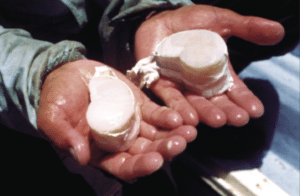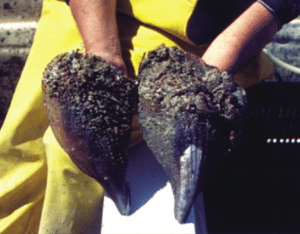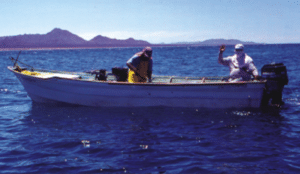Strengthening rights to the commons

The Seri, an indigenous community, was given formal communal property rights in the form of a multi-species fishing concession which helped the community to eventually be able to control access to its fishing grounds and avoid over-exploiting a commercially valuable bivalve fishery. The Seri indigenous community stands out among other fishing communities in the Gulf of California, Mexico, for their ability to govern and conserve their fishing resources without collapsing the social-ecological system in which they depend on (Basurto and Ostrom 2009). The Seri fish callo de hacha , which are sessile bivalve mollusks (Atrina tuberculosa) that command high market prices and are harvested by divers that unbury them using a rudimentary underwater breathing apparatus (Basurto 2006).

Annual approximate harvest of callo de hacha the Seri is estimated to be at least of 70 tons. This data was estimated by triangulating three independent sources: interviews to fish buyers, fishermen’s capture logs, and field data collection by Basurto (unpublished data). In comparison, the neighboring fishing town of Kino Viejo has not been able to do the same even though they harvest the same species using the same harvesting technology (Moreno et al. 2005a; Moreno et al. 2005b).
This fishery is not actively regulated by the federal government and solely self-governed by the Seri under a common property regimen in a portion of the historic coastal range that the Seri have inhabited for thousands of years (Felger and Moser 1985). In 1975, as an effort to guarantee the survival of this small tribal culture and reduce conflicts with other rapidly growing local fishing communities, the Mexican government granted the Seri with land tenure and large multi-species fishing concession (Diario Oficial de la Federación 1975). Basurto has documented the cultural (2006), institutional (2005), and biological factors (2008) that help the community control access and avoid over-exploitation of their fishing resources.

Basurto and Coleman (2010) have also explored the interaction and interplay between the institutional and ecological variables to better understand the potential of this fishery for Iong-term sustainability. Finally, another study looked at the historical aspects and the particular role of formal property rights in enabling the emergence of a communal governance system within the community
(Basurto et al. in prep) .
Key factors
Given the small size of the community, the National Indigenous Institute (INI, as of 2003: the National Commission for the Development of Indigenous Peoples) decided to grant formal communal property rights to a portion of their historic range to those indigenous groups in Mexico that were so small in number that they could risk disappearing through competition with other adjacent communities.
Parties involved
From the federal side, the National Indigenous Institute was the federal agency that promoted giving this indigenous community formal property rights for a portion of the group’s historic range. The Seri community and the marine resources which they depend to sustain their livelihoods directly benefited from the arrangement.
IASC involvement
The understanding of the issues to be studied by Xavier Basurto, resulted from attending the IASC conference in 2000.
Any literature referred to in this case story is available via the Digital Library of the Commons, or via the institutional webpage of the author. You can also download the bibliography in pdf via this link.
Authored by: Xavier Basurto, Associate Professor of Sustainability Science, Duke Universty Marine Lab, Nicholas School of the Environment

